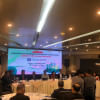What options are left for us to fight unbridled corruption?

In recent times, allegations of serious corruption against a number of government officials have come to light. From former army chief Aziz Ahmed, former IGP and Rab chief Benazir Ahmed, and former Dhaka Metropolitan Police (DMP) Commissioner Asaduzzaman Mia and his family members, to public servants working in much lower positions in the government, corruption seems to have spread its tentacles across the country's public service sector.
During the Covid pandemic, we learnt how a driver of the Directorate General of Health Service (DGHS) named Abdul Malek acquired crores of taka through corruption. At the same time, graft allegations emerged against former DGHS chief Abul Kalam Azad as well. These two stories illustrate how corruption has become institutionalised from the very top to the very bottom echelons of our government.
Another recent case of sensational corruption involves a National Board of Revenue (NBR) official named Md Matiur Rahman, and his wife Laila Kaniz Lucky, chairman of Narsingdi's Raipura Upazila Parishad. What's interesting about their case is how they came to light. Matiur's corruption was revealed only after a video of Matiur's son buying a goat at Tk 15 lakh for Eid-ul-Azha went viral. Ironically, even the sellers of the goat were allegedly involved in corruption in the selling process as well as in other operations. Matiur's wife Lucky even submitted her tax files to the Election Commission (EC) before the upazila parishad polls earlier this year. But the commission failed to unearth the corruption of Lucky and her family at that time.
This brings into question how well our public institutions are doing in terms of identifying and addressing corruption. How is it that the EC failed to notice that Lucky had understated her wealth? In fact, prior to the last national election, this newspaper had reported how this election witnessed the highest number of candidates with movable or liquid assets of Tk 1 crore or more. A number of ministers saw their wealth increase by more than a few thousand percent. And the EC showed no curiosity as to how these ministers managed to multiply their wealth by such absurd amounts. Are they just that good at business and investment? If they are such financial geniuses, why isn't our economy doing as well under their leadership?
And the same absurd wealth increase was seen among candidates during the upazila parishad polls. Again, the EC showed the least bit of interest to find out how these candidates managed to acquire such massive wealth, similar to the national election candidates.
Far from addressing corruption, our public institutions seem to be doing the opposite. For example, right after the reports of alleged corruption concerning former law enforcement high-ups came out, the Bangladesh Police Service Association (BPSA) released a statement which seemingly threatened the media against reporting on corruption by law enforcers. Without being able to identify a single victim who was maligned by the media reports, the BPSA labelled the reports as "partial, motivated, exaggerated, and misleading."
The BPSA also claimed that the reports were "tarnishing the police's image," while ignoring the damage done by the alleged corruption of its former members. Such claims have become the go-to tactic whenever allegations of corruption are raised. For example, Awami League General Secretary Obaidul Quader recently alleged—as many of his party members had previously done—that corruption accusations were being brought forth to portray AL as a corrupt party. Making such claims, without verifying the authenticity of the allegations, can often be seen as the most commonly used tactic in kleptocracies around the world.
And this is what the Opposition Leader and Jatiya Party Chairman GM Quader recently pointed out in parliament: that corruption, at the scale that it is happening, has become the biggest threat to our economy. Quader rightly said that a wealthy circle has emerged comprising corrupt individuals, loan defaulters, and money launderers; in other words, we are being ruled by a kleptocratic and corrupt elite. And this has come about as a result of lack of accountability and governance failures.
Awami League MP AFM Bahauddin Nasim also rightly spoke about the fact that government bodies are doing the nation a huge disservice by coming to the defence of the corrupt. But the fact remains that it is his party that has weakened the law when it comes to identifying and preventing corruption by public servants—through the Government Services Act, 2018, for example, which even AL leader and lawmaker Mahbubul Alam Hanif said could be "considered a law to protect criminals."
Through an amendment to the Government Servants (Discipline and Appeal) Rules, 1985, the authorities in 2018 included "reprimand" as a penalty for corruption that has been proven through investigations. Before this amendment, the punishment was either "compulsory retirement," "removal from service" or "dismissal from service." To simply "reprimand" a public servant who has been found to be involved in corruption, while allowing them to remain in "service," is a slap in the public's face. And since 2018, numerous public servants proven to be involved in corruption have continued to remain in service due to this amendment, with only a slap on the wrist.
And it's not only the AL, but the BNP too, which through the 2002 amendment to the Government Servant (Conduct) Rules, 1979 relaxed the anti-graft rules for public servants. This only demonstrates the mindset of our political class in general: their primary motivation is to curry favour from public servants, rather than ensure transparency and accountability in public service for the sake of the public.
The only way to change this mindset is to get honest politicians into positions of power and hold to account those who are not truly serving the people. Unfortunately, all the mechanisms meant to do so seem to have been weakened, if not completely destroyed, one after another in recent decades. That's why the AL managed to make such an amendment to the public service rules, which can easily be argued to have breached Article 20 (2) of the constitution, while no other branch of government stepped in to prevent it.
So, ordinary citizens have only two options now: 1) allow corruption to run rampant and cost them in every sphere of life as a result; or 2) form mass movements that are strong enough to force politicians, public servants and other government authorities to not only rectify the legal issues that they have created, but enforce them to the letter, which will automatically deter government employees from getting involved in corruption.
Eresh Omar Jamal is deputy head of editorial at The Daily Star. His X handle is @EreshOmarJamal.
Views expressed in this article are the author's own.
Follow The Daily Star Opinion on Facebook for the latest opinions, commentaries and analyses by experts and professionals. To contribute your article or letter to The Daily Star Opinion, see our guidelines for submission.

 For all latest news, follow The Daily Star's Google News channel.
For all latest news, follow The Daily Star's Google News channel. 












Comments